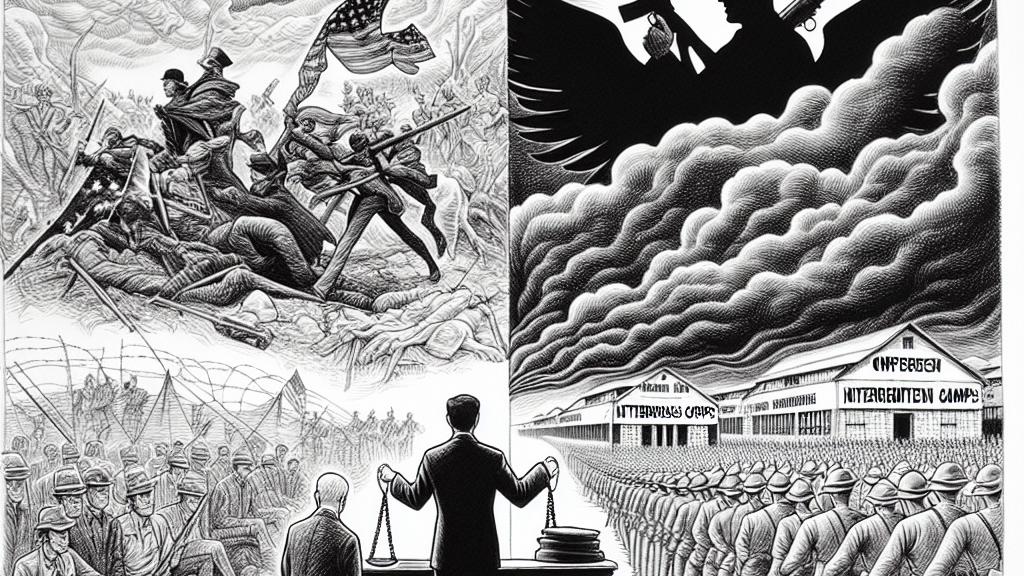Understanding the Changes to Freedom in America During War Times
Overview
- Examines the paradox of freedom in America during wartime through compelling examples.
- Covers key historical events that reshaped civil liberties in profound ways.
- Analyzes the enduring implications these changes have for democracy and the American identity.

The Irony of Freedom in War
In the United States, often lauded as the bastion of liberty, the concept of freedom takes on an unsettling and complicated twist during times of war. Take, for instance, Abraham Lincoln—a president famed for his dedication to liberty. When the Civil War erupted, Lincoln faced an extraordinary challenge. He made a controversial choice to suspend habeas corpus, which enabled the government to detain individuals without trial. This action ignited fiery debates about what it truly means to be free. Similarly, during World War II, another dark chapter unfolded: President Franklin D. Roosevelt authorized the internment of approximately 120,000 Japanese Americans, their rights stripped away in the name of national security. These events starkly illustrate a disturbing reality: when a nation is threatened, the very freedoms that define its character can devolve into mere illusions, leaving citizens to grapple with the bitter irony of their situation.
Historical Context of Civil Liberties
Delving into America's past reveals a troubling pattern where wars catalyze drastic shifts in civil liberties. Consider the Espionage Act of 1917, which made it a crime to dissent against the U.S. involvement in World War I. Critics were silenced, their voices muffled by a government terrified of opposition. Moreover, the internment of Japanese Americans during World War II serves as a poignant reminder of fear trumping justice. This remarkable episode highlights how prejudice can take root when we feel threatened. These actions raise essential questions: How can a nation founded on the ideals of freedom so easily betray its principles? The experiences of those subjected to these injustices show us the fragility of rights that we often take for granted, underscoring the need for vigilance and accountability in safeguarding them.
The Impact on Democracy
The erosion of civil liberties, particularly during wartime, poses severe risks to the democratic framework of our society. When governments act without regard for individual rights, public trust erodes, leading citizens to feel alienated and divided. For example, the uproar over Japanese internment sparked a national conversation around accountability, shining a light on the dangerous precedents set when security supersedes liberty. Additionally, the narrative that immediate dangers justify curtailing rights can become a slippery slope, normalizing encroachments on freedom. This pattern challenges our very understanding of democracy, compelling us to ask profound questions: What does true freedom mean in a society governed by laws? As we reflect on these crucial historical lessons, it becomes imperative that we champion civil rights and remain vigilant against any threat to our freedoms, ensuring that the American ideals we hold dear continue to shape our future.

Loading...